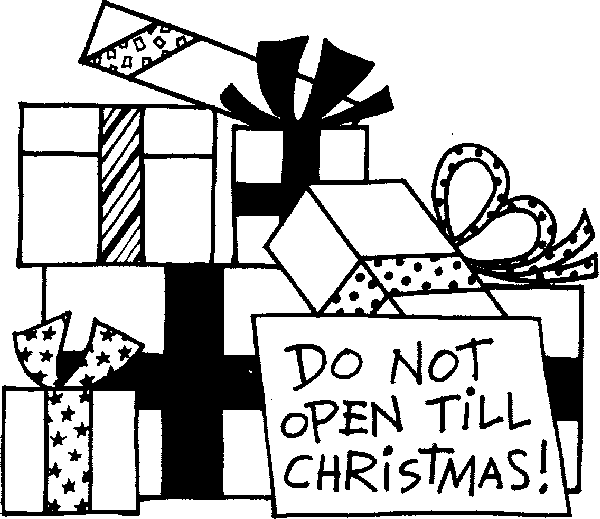How to Find the Perfect Gifts for Everyone On Your List
by: Chris Robertson

With the holidays just around the corner, many people are wracking their brains, trying to think of the perfect gifts for every person on their list. It can be hard to find gifts that convey the right emotional tone and that the recipient will enjoy. Here, then, are tips to find the perfect gifts for everyone on your list.
Friend, Family or Colleague?
First, write down the name of every person for whom you'd like to (or are obligated to) buy a gift. Next, give each person a rating on a scale of one to five, depending on how close they are to your intimate inner circle. If it helps, draw a series of five concentric circles, with the center circle representing those who know your dreams and aspirations and experience your joys and tribulations as they happen. The outer circle represents those people who may not know the "real" you, such as your boss or a business associate. There may be people on your list, such as your child's teacher, who isn't close to you, but who has made a tremendous difference in your child's life. Even though she may not know you well, you might decide to put her name in the second circle.
To read more please go Freelance Fingerprints
============================
#Daily Writing Tip :
----------------------------
Top 20 Abused, Misused, And Mistreated Words
by Christine Harrell
Many words in the English language are used incorrectly. Every writer can benefit from a refresher that outlines some of these most commonly misused words. If you are not always sure of when to use some of these words, you're in good company. Many intelligent and well-educated people continue to use these words incorrectly. But before you publish your next document or click the 'submit' button on that email, double check for any violations of these 20 abused, misused, and mistreated words.
accept: to receive; to answer positively except: not including; everything but anxious: worried/nervous eager: excited/looking forward to affect: to pretend; to influence effect: a result assure: to make certain (such as with a person) ensure: to make sure (such as with a thing) insure: to provide or obtain insurance beside: at the side of besides: in addition to between: two items that are related among: three or more things related choice: a decision or an option choose: to make a decision chose: past tense of choose compliment: to praise complement: something that completes farther: literal or physical distance further: to a greater extent fewer: comparative with plural items less: items that are singular imply: to suggest infer: to deduce its: possessive form of it it's: contraction for it is or it has lay: to place, which is always followed by an object lie: to recline **For present tense only. Tip: If you can replace the word in question with put, then use lay. nauseated: not feeling well nauseous: disgust set vs. sit: In general, set refers to an object ("Set the materials down on the table") and sit does not ("She sat for an hour, waiting for the bus"). that vs. which --"Which" is frequently used to introduce a nonrestrictive clause, a phrase that isn't necessary or supplies additional information and is usually set off by commas. For example: The burned CD, which she received from a friend, wasn't as great of quality as the original from a music store. --"That" is used for introducing restrictive clauses that refer to things, phrases that ARE essential to the meaning of the rest of the sentence. For example: The CD that consists of all of the band's top-ten singles is her favorite. that vs. who/whom In most cases, "who/whom" is the standard form when referring to human beings, especially in regards to an individual person. "That" is used when referring back to a class, species, or type. "Which" should never be used in reference to humans. A correct example with "who": She goes to the hairstylist who is the best. A correct example with "that": He is the type of hairstylist that should charge more because he is the best. their: possessive form of they there: in or at that place they're: contraction for they are whose: possessive form of which, who who's: contraction for who is your: possessive form of you; belonging to you you're: contraction for you are
While spell check quickly catches misspellings, misused words can easily slip past spell check and into your documents. One way to identify words used out of context is by turning on your word processor's grammar check feature. However, though grammar check will identify a majority of misuses, it shouldn't be your final proofreading expert. Some misuses, particularly those that involve uses of 'that vs. who/whom,' can pass through grammar check but still need repair.
For important and published works, consider sending your documents to a professional proofreading service. Even professional writers use proofreaders. After staring at your document for hours on end, it's easy to skim over sentences with missing words, typos, and words used out of context. Professional proofreading services are affordable, fast, and ensure that readers always associate you and your company with top-notch quality work.
About the Author
Author is a skilled and professional copywriter. For more information about proofreading your work, visit http://www.WritersRelief.com
==================================
Freelance Jobs
Get Instant Access to Hundreds of Work-at-Home JobsWant exclusive access to the hottest freelance jobs online today? Signing up for trial membership of Freelance Work Exchange gives you access to cool projects like these:
Fire your boss and set your work-at-home career off to a cracking start. Click here to get instant access for just $2.95. Start your work-at-home career today. Get direct access to hundreds of freelance and home-based jobs. Click here to find work now.
No comments:
Post a Comment